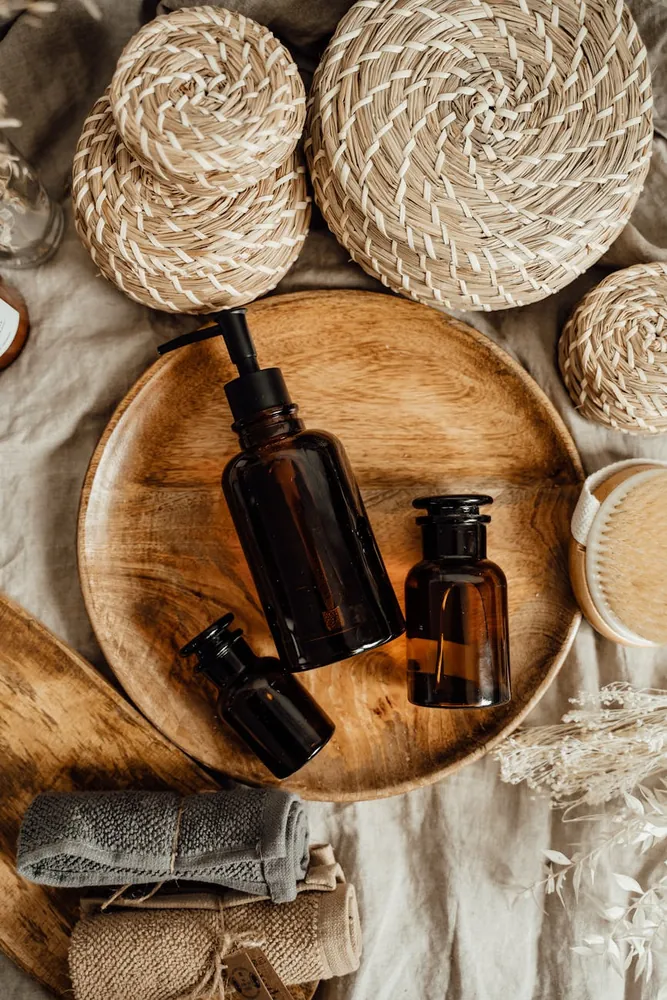Assessing the Effectiveness and Sustainability of Different Skincare Approaches

The Landscape of Luxury Skincare
Luxury skincare has evolved into a multifaceted industry, offering products that range from organic concoctions to high-tech biotech formulations. The market has expanded to meet consumer demands for effectiveness, safety, and environmental responsibility. In this article, we will explore three predominant approaches to skincare: organic, traditional, and biotech products. We will assess their effectiveness, safety, and sustainability to help you make informed decisions that align with your values and skincare needs.
Organic Skincare: Embracing Nature
Organic skincare products are formulated using natural ingredients sourced from plants and minerals. They are often free from synthetic chemicals, fragrances, and dyes, making them a popular choice for those with sensitive skin or allergies.
Effectiveness
The effectiveness of organic skincare is often debated. Advocates claim these products harness the power of nature, using active botanicals to nourish and rejuvenate the skin. Ingredients like aloe vera, chamomile, and green tea are renowned for their soothing and antioxidant properties.
A practical example is the use of rosehip oil, rich in vitamins A and C, known for its ability to hydrate and brighten the skin. However, it’s essential to note that organic products may have slower results compared to their synthetic counterparts due to lower concentrations of active ingredients.
Safety
Organic products are generally considered safe due to their minimal use of synthetic chemicals. However, it's crucial to check for any potential allergens or irritants, such as essential oils, which can trigger reactions in some individuals.
Sustainability
Many organic skincare brands emphasize sustainability by using eco-friendly packaging and sustainable farming practices. This approach supports biodiversity and reduces environmental impact. Brands like Tata Harper and Herbivore Botanicals lead the way with their commitment to green beauty standards.
Traditional Skincare: Tried and True
Traditional skincare products often rely on synthetic ingredients developed through decades of scientific research. These products aim to deliver quick and visible results.
Effectiveness
Traditional skincare is lauded for its rapid results and targeted formulations. Retinoids and peptides are popular components known for reducing wrinkles and enhancing collagen production.
An example is the use of hyaluronic acid in serums for intense hydration. While effective, traditional products may also contain fillers or preservatives that can irritate sensitive skin.
Safety
Traditional products undergo rigorous testing to ensure safety and efficacy. However, the presence of synthetic additives means they may not be suitable for everyone, especially those with allergies or sensitive skin.
Sustainability
The sustainability of traditional skincare is often questioned due to chemical production processes that may harm the environment. However, brands are increasingly adopting greener methods, using recycled materials and reducing waste.
Biotech Skincare: Science at the Forefront
Biotech skincare harnesses advanced technologies to create high-performance products. These include lab-grown ingredients and precision delivery systems.
Effectiveness
Biotech approaches offer highly effective solutions, often backed by clinical trials. For instance, lab-engineered growth factors can stimulate cell regeneration more efficiently than traditional extracts.
A standout product category is peptides engineered to mimic natural skin functions, offering targeted treatments for aging and damage repair.
Safety
Despite their cutting-edge status, biotech products often come with extensive safety profiles. Precision formulations reduce the risk of irritation while maximizing therapeutic effects.
Sustainability
Biotech skincare can contribute to sustainability by reducing the need for natural resource extraction. Lab-grown ingredients like squalane exemplify how technology can offer sustainable alternatives without sacrificing quality.
Choosing the Right Approach for Your Needs
Selecting a skincare regimen depends on personal preferences and goals:
- If sustainability and minimizing environmental impact are priorities, organic skincare may be appealing.
- If achieving fast results is crucial, traditional products might suit your needs despite potential sensitivities.
- If you seek innovation and precise results, biotech solutions offer a compelling mix of science and sustainability.
Practical Mini-Framework: Aligning Values with Skin Needs
- Identify Your Skin Type: Determine whether your skin is dry, oily, combination, or sensitive.
- Set Your Priorities: Decide what matters most—results speed, ingredient purity, or environmental impact.
- Research Brands: Look for brands that align with your values. Check reviews and ingredient lists.
- Patch Test: Always patch test new products to avoid adverse reactions.
- Evaluate Results: Monitor your skin's response over time to ensure the regimen meets your needs.
The Future of Luxury Skincare
The luxury skincare industry continues to evolve with consumers increasingly demanding transparency and sustainability alongside efficacy. As brands innovate with new technologies and sustainable practices, consumers can look forward to products that reflect both personal values and advanced dermatological research.
